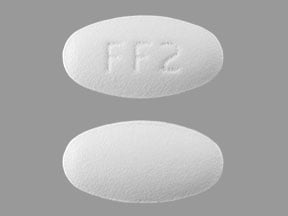My prescription
Edit
20MG, Atorvastatin (30 Tablets)
Select pharmacy

CVS
$18.93
COUPON PRICE
Walmart
$3.68
COUPON PRICE
Walgreens
$10.00
COUPON PRICE
Albertsons
$14.62
COUPON PRICEAtorvastatin savings card
Show this card to your pharmacist
Walmart
$3.68
BIN
ID
PCN
GRP
019876
LHBC30A412
CHIPPO
LHX
Powered by
Related statins prescriptions
More prescriptions for high cholesterol
Related statins prescriptions
More prescriptions for high cholesterol
Price history for Lipitor (brand) & Atorvastatin (generic)
30 Tablets, 20MG
Average retail price for Lipitor
Average retail price for Atorvastatin
Average SaveHealth price for Atorvastatin
Our price history data is based on aggregated prescription data collected from participating pharmacies in America. Our prescription data updates daily to reflect the latest price changes. If you notice a missing data point, it means there wasn't sufficient data available to generate a monetary value for that date.
We analyzed Atorvastatin prices for (20MG, 30 Tablets) over the last 12 months. The average retail price was $26.47, while the average price using the SaveHealth discount card was $6.29. That's a savings of approximately 76.24% when using our Atorvastatin coupon.
Compared to the generic version, Lipitor had an average price of $675.47 over the same time period. With the SaveHealth savings card, Atorvastatin is 99.07% cheaper on average than Lipitor.
*Retail prices are based on pharmacy claims data, and may not be accurate when we don't have enough claims.
Atorvastatin dosage forms
Dosage Quantity Price from Per unit 10MG 15 Tablets $2.97 $0.20 10MG 30 Tablets $3.45 $0.12 10MG 45 Tablets $3.92 $0.09 10MG 60 Tablets $4.40 $0.07 10MG 90 Tablets $11.84 $0.13 10MG 180 Tablets $19.64 $0.11 20MG 30 Tablets $3.68 $0.12 20MG 45 Tablets $4.26 $0.10 20MG 60 Tablets $4.85 $0.08 20MG 90 Tablets $12.53 $0.14
| Dosage | Quantity | Price from | Per unit |
|---|---|---|---|
| 10MG | 15 Tablets | $2.97 | $0.20 |
| 10MG | 30 Tablets | $3.45 | $0.12 |
| 10MG | 45 Tablets | $3.92 | $0.09 |
| 10MG | 60 Tablets | $4.40 | $0.07 |
| 10MG | 90 Tablets | $11.84 | $0.13 |
| 10MG | 180 Tablets | $19.64 | $0.11 |
| 20MG | 30 Tablets | $3.68 | $0.12 |
| 20MG | 45 Tablets | $4.26 | $0.10 |
| 20MG | 60 Tablets | $4.85 | $0.08 |
| 20MG | 90 Tablets | $12.53 | $0.14 |
| 20MG | 180 Tablets | $20.49 | $0.11 |
| 40MG | 30 Tablets | $4.24 | $0.14 |
| 40MG | 45 Tablets | $5.11 | $0.11 |
| 40MG | 60 Tablets | $5.97 | $0.10 |
| 40MG | 90 Tablets | $14.21 | $0.16 |
| 40MG | 180 Tablets | $22.45 | $0.13 |
| 80MG | 15 Tablets | $3.83 | $0.26 |
| 80MG | 30 Tablets | $5.16 | $0.17 |
| 80MG | 45 Tablets | $6.49 | $0.14 |
| 80MG | 60 Tablets | $7.82 | $0.13 |
| 80MG | 90 Tablets | $16.97 | $0.19 |
| 80MG | 180 Tablets | $27.98 | $0.15 |

